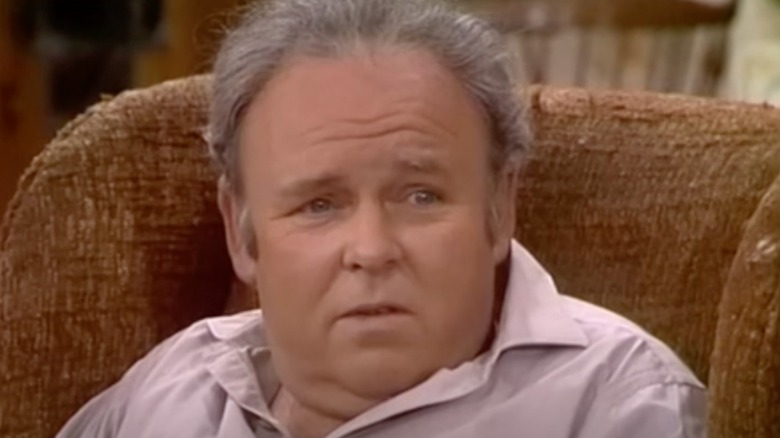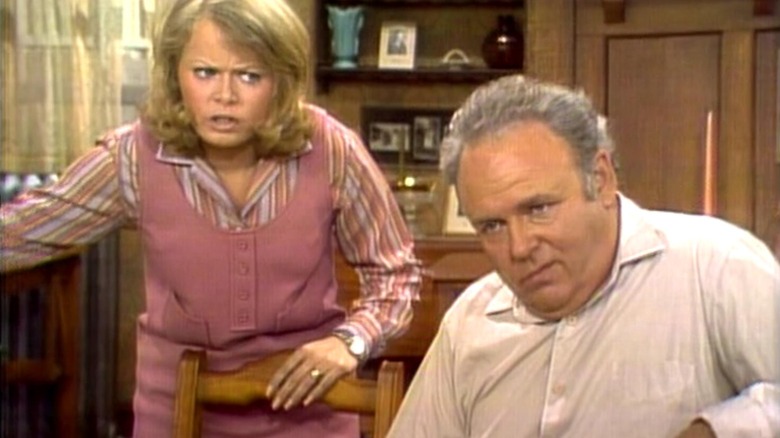
Archie Bunker, as played by Carroll O’Connor, is a fascinating cultural pivot point for American television. He was a lout, a bigot, and perpetually angry, baffled by the social progress being made in the United States in the 1970s. He looked to the past frequently, and reminisced about how life used to be simpler; it’s no wonder that the theme song to his show, “All in the Family,” was called “Those Were the Days.” Bunker was not a good person … and yet continuously showed vulnerability and heart. Nostalgia is all well and good, but one might not want to vaunt the past; it wasn’t always better for everyone. It’s no wonder that “Family Guy” regularly lampoons “All in the Family” with such verve.
As “All in the Family” progressed, Bunker proved again and again that he was capable of compassion, and could — if he was determined — rise above his prejudices. “All in the Family” is a tale of how a terrible man, long since calcified, develops a sense of principles. He was a bigot, but could occasionally learn not to be.
O’Connor, meanwhile, was quite the opposite. Indeed, O’Connor once appeared on “The Dick Cavett Show” to explain Archie Bunker in plain, unflattering terms. O’Connor saw Archie as an unhappy person. He’s not making it in the modern world, having been poisoned by hate and bigotry at an early age. O’Connor knew that Archie Bunker’s common descriptor of “the lovable bigot” was an oxymoron.
Beyond his wise view of Archie Bunker, O’Connor was also deeply principled, and once refused to shoot scenes of “All in the Family” because of his integrity. According to an interview with The Plain Dealer (handily transcribed by MeTV), O’Connor stayed away from the set of “All in the Family” when the CBS workers went on strike. He refused to film with anyone who would cross the picket line.
Carroll O’Connor refused to cross the picket lines
For a little background, there was an eight-week CBS technicians strike back in 1972, when “All in the Family” was in its third season. The strike lasted from November 3 and wasn’t properly settled until December 29, as reported by the New York Times. The strike was about how CBS wanted to replace a lot of technicians with automated machines, and how the old technicians wouldn’t retain dominion over some of the new digital devices being folded into multiple productions. The settlement of the strike was hardly unanimous — the vote to settle was 364 to 206 — but it was enough to get the technicians back to work under slightly better conditions.
O’Connor, a lifelong union man, believed in the technicians. During the strike, he could have continued shooting “All in the Family,” but would have had to work with the higher-ups denying the technicians fairness, or with scabs who weren’t striking. O’Connor was plainspoken about the matter, saying:
“I’ve been a trade union man all my life. […] I cannot work with strikebreakers. If I worked with management personnel, I’d be helping to break a strike line. But the point is that I cannot work — by the top comic actor on the top comic show on TV — in an atmosphere of labor strife. […] As soon as the strike is over, I’ll report back to work. If they no longer need me, I’ll go home again.”
There was some speculation as to whether or not O’Connor’s relationship with “All in the Family” creator Norman Lear was strained by his comments. O’Connor commented that Lear often doubted the actor’s sincerity, and often implied that O’Connor was working against the better interests of the show; their relationship was classically strained. Of course, Lear is well known for bickering with his biggest stars, so O’Connor was likely following his heart … and getting in a little dig at Lear in the process.



Leave a Reply